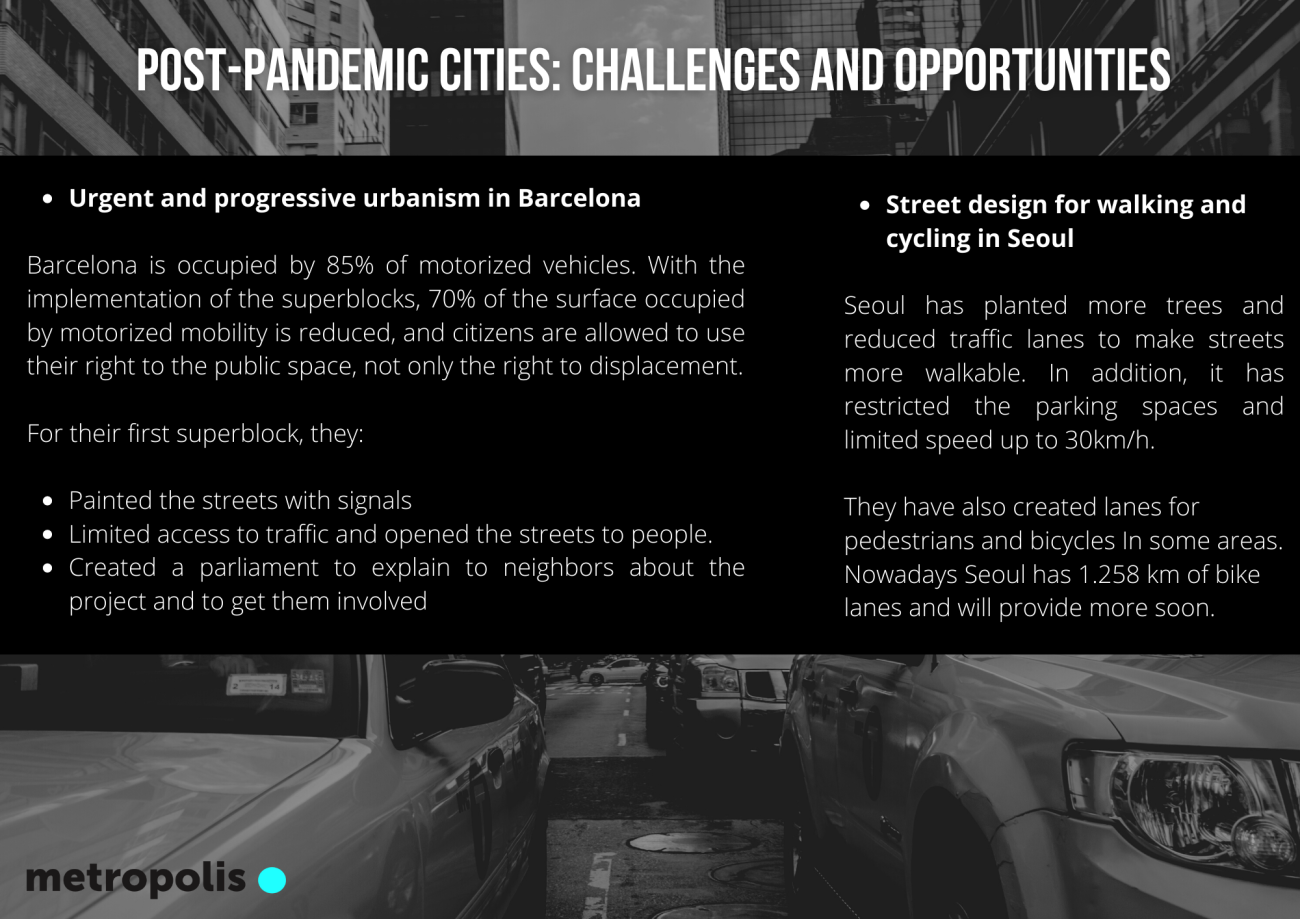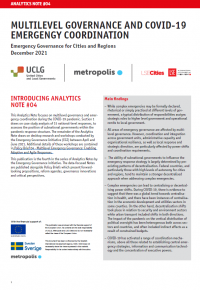
Post-Pandemic Cities: Challenges and Opportunities
This training workshop organised by Metropolis International Training Institute of Cairo discussed the Post-Pandemic city planning and management approaches, models, and practice. It also explored how the crisis have made many changes feasible that were before unimaginable or difficult to envision. During this session participants could debate about new planning models such as the 15-minute city, the compact city, super blocks, the car-free city, concepts of new urbanism or a combination of them, and the pandemic effect on the implementation of these concepts.
While scholars, policymakers, and practitioners worldwide were looking for an answer to what our cities need right now, a new coronavirus crisis has quickly spread over the world's cities altering city life almost beyond recognition; not only for being a health crisis but also for having a fundamentally different impact on society, economies, and cities.
Interventions to face COVID-19 pandemic have revealed the weaknesses in the urban planning as well as the urban management of metropolitan spaces. City inhabitants came to realise the importance of proximity to service and the safety of different modes of mobility. The pandemic accelerated digitalization in all areas of our life: work from home, distance learning, banking, and service provision, which urged many developing countries that had insufficient Internet service provision and usage to adopt measures to change the service provision from physical to virtual provision.
This hybrid workshop discussed approaches, models and practices for planning and managing post-pandemic cities. We explored how the crisis has made possible many transformations that were previously unimaginable or difficult to foresee.
The workshop discussed new planning models such as the 15-minute city, the compact city, super blocks, the car-free city, new urbanism concepts or a combination of these, and the effect of the pandemic on the implementation of these concepts that were developed before the crisis but gained momentum during it, and how these models can help shape post-pandemic cities.
The workshops aimed at:
• Understanding the challenges and opportunities arising from the pandemic life.
• Introducing new planning concepts to design a Post-Pandemic City.
• Exploring the usefulness of such concepts with their emphasis on different sectors.
• Discussing the potentials and challenges of new models and concepts.
• Developing priorities for efficient urban response and recovery after the Pandemic.

For more information, you can read the news
Do not hesitate to contact us for further enquiries at postpandemiccities@gmail.com
- Prof. Abdel Mohsen Barrada, Ex-Dean of faculty of regional and urban planning - Cairo university
- Dr. Sangjin Han, Professor of Seoul National University
- Mr. Josep Bohigas, Barcelona Regional Director, Urban Development Agency
- Prof. Abbas El-Zafrany, Ex-Dean of faculty of regional and urban planning - Cairo university
- Dr. Sangjin Han, Professor of Seoul National University
- Dalia M.Fawzy, Associate Researcher
- Dr.Reham Kamal, Researcher of HBRC
- Dr. Soad Abdel Rehem, Ex-chairman of Social and Criminology National research center
- Dr. Junyoung Choi, Head of Data Science Center in Seoul Institute of Technology
- Dr. Mohamed Fathy, Professor of HBRC
- Eng. Mahmoud Mabrouk- FRUP-Cairo University
- Dr. Ahmed Essam El-Malt, Eng. Yassmin Khaled Faculty of Engineering, Cairo University
- Dr. Junyoung Choi, Head of Data Science Center in Seoul Institute of Technology & Workshop Organizing Team





